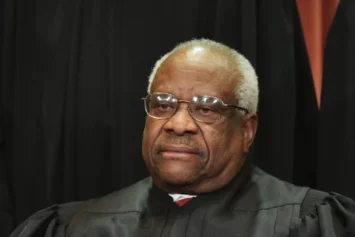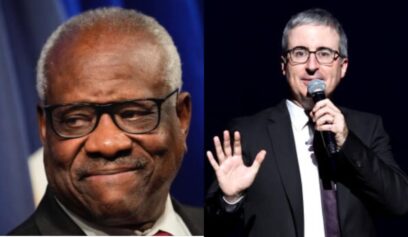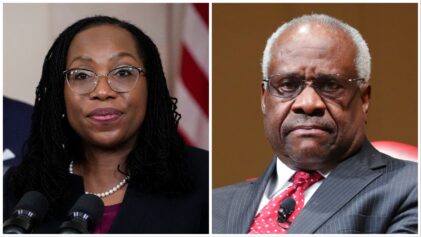Anita Hill revisits her 1991 testimony on Capitol Hill, as the subject resurfaces in the upcoming HBO film ‘Confirmation.’ The film stars actress Kerry Washington as Hill, who is known for her heart-wrenching public testimony against then-Supreme Court nominee Clarence Thomas for sexual harassment.
During her testimony, Hill stated that she repeatedly received sexual advances from Thomas during their years working together in government positions. At the time, Thomas had been nominated to succeed the court’s first Black justice, Thurgood Marshall, and Hill was scrutinized across several media platforms after Thomas denied the allegations and was still approved into the court.
Hill, who is a now a professor at Brandeis University, told Today in an interview that she has accepted her part in the events. She stated that she has found her peace in her place in history.
“I don’t think I have to become at peace with him being on the Supreme Court … that was so important to the integrity of the court,” she said.
After her public testimony, Hill was accused by many of being a race traitor for speaking forthrightly about her experiences of harassment against the esteemed professional. After allegations surfaced, Thomas angrily referred to the process of questioning as a “high-tech lynching” by an all-White male Senate, an expression that Hill told Essence she found “outrageous.”
“I think that’s why the lynching metaphor was effective in 1991, because Black women didn’t know our own stories. We did not claim a clear political or social identity in terms of what had happened to us all those years in the context of racial and sexual violence,” Hill said.
Twenty-five years later, Hill reflects in Essence how the incident has caused a shift for African-American women to have her own political voice and political position, and to believe that their perspectives are worth hearing.
“Those members of Congress had never even considered that Black women had our own political voice. They assumed that Black men spoke for us. For an African-American woman, I think that’s why women became so agitated and so energized to make change on this important issue,” she said.
“Even 25 years later it is still worth asking how we can make sure that when representatives call citizens to speak, their government actually hears them.”
The film’s much-awaited premiere is April 16 on HBO.



